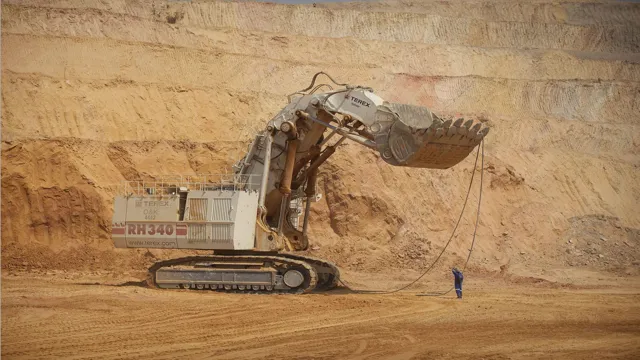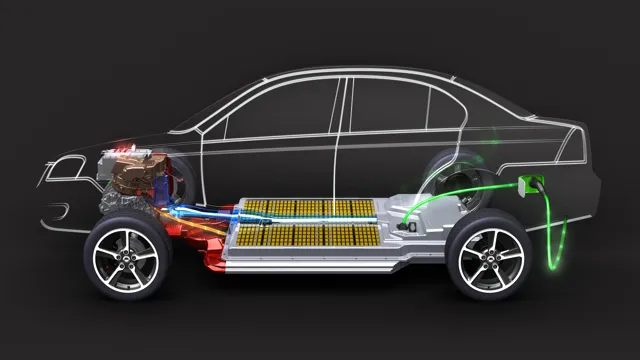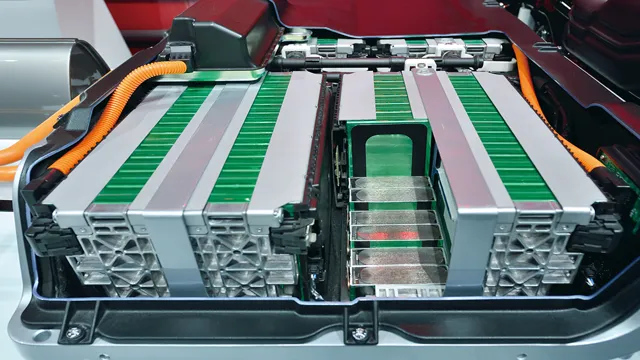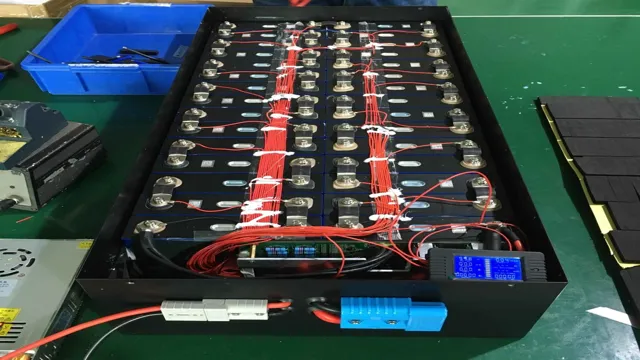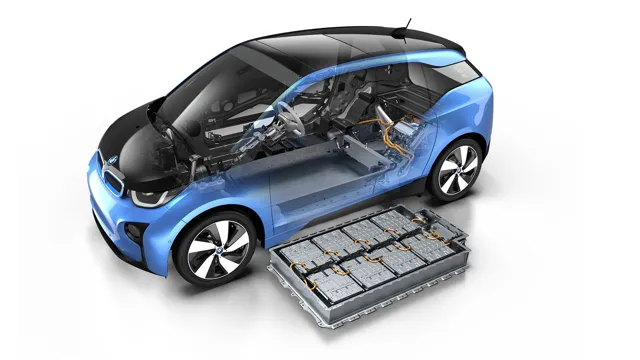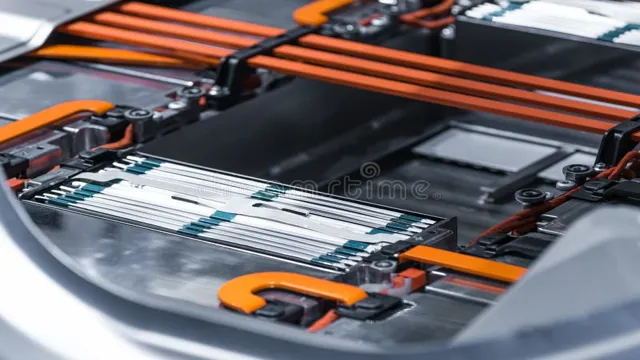Unearthing the Future: The Boom of Electric Car Battery Mining in Africa
Electric cars are becoming increasingly popular as people focus on reducing their carbon footprint and finding alternative modes of transportation that are sustainable. One of the key components of electric cars is the battery, which provides the power needed for the vehicle to function. Therefore, the mining of materials for these batteries such as lithium, cobalt, nickel, and manganese has become a crucial issue.
Africa is a continent that is rich in these minerals, making it a vital player in the global supply chain of electric car batteries. However, there are some concerns about the impact of this mining on local communities and the environment. Many countries in Africa are still developing and lack proper regulations and infrastructure to manage the mining of these materials sustainably.
Furthermore, the extraction of these minerals can lead to pollution and land degradation, which can harm both people and wildlife. On the other hand, the mining of electric car battery materials in Africa has the potential to create economic opportunities for local populations and boost the continent’s overall economic growth. It could also contribute to reducing the world’s dependence on fossil fuels, which have been a major driver of climate change.
As the demand for electric cars continues to grow, it is important to find a balance between accessing the minerals needed for these batteries and ensuring that the mining is done in a sustainable, responsible manner. This will require collaboration between global companies, governments, and local communities to develop solutions that benefit everyone involved while protecting the planet’s natural resources.
Introduction
Electric car battery mining in Africa is a topic that has gained significant attention in recent years, as the demand for electric vehicles continues to grow. Despite having a wealth of minerals, Africa still remains largely untapped in terms of mining electric vehicle batteries. The production of electric vehicles is quickly becoming the future of the automotive industry and will require a significant amount of battery metals such as cobalt, lithium, and nickel.
This presents a unique opportunity for Africa to establish itself as a key player in the battery metals industry, which could have a positive economic impact. However, it is also important to consider the environmental and social impacts of mining, as well as ensuring that the communities where the mining takes place are properly compensated and their voices are heard throughout the process.
Why Africa is an important player in electric car battery mining
Electric car battery mining in Africa As the world moves towards sustainable energy solutions, electric cars are becoming more popular, which means an increase in demand for electric car batteries. Africa is an important player in the electric car battery mining industry due to its abundance of minerals needed for battery production. The continent is rich in cobalt, lithium, graphite, and manganese, which are vital components in the making of electric car batteries.
This creates an opportunity for African countries to benefit from the global shift towards cleaner energy sources and the growth of the electric vehicle market. Electric car battery mining can bring about economic growth and job creation in African countries, but it is crucial that the mining is done responsibly and sustainably to minimize its impact on the environment and local communities.
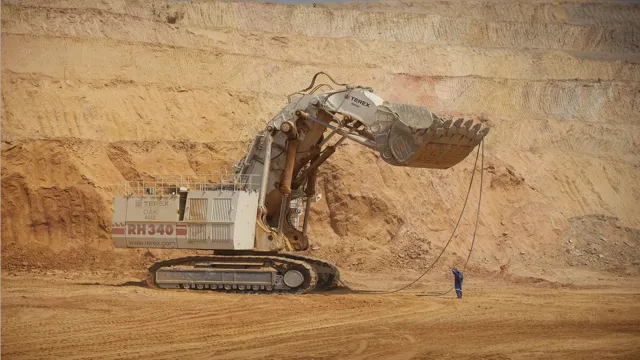
Current state of electric car battery production in Africa
Electric car battery production in Africa is still in its infancy, with the majority of the continent yet to start manufacturing the components required for these vehicles. There are some exceptions, such as South Africa and Morocco, which both host factories that manufacture batteries and other critical components used in electric cars. However, limited investment and infrastructure constraints have impeded the growth of the electric vehicle industry in many African countries.
This means that carmakers in Africa continue to rely heavily on importation, driving up costs and slowing down the adoption of EVs on the continent. Nonetheless, with the increasing demand for environmentally-friendly vehicles worldwide, it is only a matter of time before the electric car battery production sector takes off in Africa.
Challenges in Electric Car Battery Mining in Africa
Electric car battery mining in Africa faces a myriad of challenges, unlike any other regions in the world. One of the significant challenges is the lack of investment in the mining sector, which affects the establishments of any standard mining infrastructure. The inadequacy of specialized equipment, poor transportation facilities, and insufficient power supply also pose significant challenges to a sustainable battery mining industry.
Furthermore, the regulatory framework is weak, and illegal mining activities are rampant in many African countries, which portends a considerable danger to the local people and the environment. The extraction of minerals used in making electric car batteries, such as cobalt, lithium, and rare earths, are hazardous and require special techniques that are expensive and usually absent in Africa. Despite these challenges, promoting a sustainable electric car battery mining industry in Africa could have significant positive impacts on the continent’s economy, energy security, and environmental sustainability.
Environmental impact of battery mining
When it comes to electric car batteries, Africa has a wealth of important minerals such as cobalt, lithium, and nickel. However, mining these minerals brings about numerous environmental challenges that need to be addressed. One of the biggest concerns is the impact on local water supplies.
The mining process can contaminate underground and surface water resources, which can have serious consequences for communities that depend on them. Additionally, toxic chemicals and heavy metals used in the process can end up in the air and soil, leading to health issues for locals as well as long-term ecological damage. There is a pressing need for mining companies to implement sustainable practices that protect the environment and the health of nearby communities.
The situation is complex, but it is crucial to address these challenges head-on to ensure the success of the electric car industry in Africa.
Child labor concerns in battery mining
Electric Car Battery Mining in Africa is facing a major challenge with child labor concerns. The mining of minerals like cobalt, which is a crucial component in electric car batteries, has led to an increase in child labor across Africa. Many children are forced to work in dangerous and exploitative conditions in the mines to meet the high demand for cobalt.
To make matters worse, most children work for very low wages and are exposed to hazardous chemicals and heavy machinery without proper safety equipment. This has raised concerns about the ethics of the electric car industry and calls for more responsible and sustainable mining practices. The industry must work together to eradicate child labor and ensure that the raw materials used in the production of electric car batteries are sourced in an ethical and sustainable manner.
Political instability affecting mining operations
The challenges facing electric car battery mining in Africa are numerous, with political instability being one of the major factors affecting mining operations. The volatile nature of the political climate in several African countries has created an environment where mining companies have to contend with regulatory uncertainties and frequent changes in policy. This unpredictability often makes it difficult for mining companies to make long-term investments, and consequently, it slows down progress in the sector.
Moreover, many communities in Africa are skeptical of the mining industry due to years of exploitation, forced displacement, and environmental degradation. Therefore, it’s imperative for mining companies to work closely with these communities to build trust and ensure that their operations are sustainable and environmentally-friendly. Ultimately, the success of electric car battery mining in Africa is contingent on ensuring stable political and regulatory environments, as well as transparent and responsible mining practices that benefit local communities.
Possible Solutions to Challenges
The rise in demand for electric vehicles has brought some challenges to the forefront, such as the issue of mining for electric car batteries. Africa is home to some of the world’s largest cobalt and lithium deposits, which are essential minerals in building electric car batteries. However, electric car battery mining in Africa has been marred by challenges such as child labor, environmental degradation, and exploitative practices.
However, there are possible solutions to these challenges. One solution could be to promote transparency and ethical mining practices in African countries to ensure that minerals are mined without exploiting workers or harming the environment. Another solution could be to invest in research and development to find alternatives to cobalt and lithium in electric car batteries.
This could reduce the dependence on African countries for these minerals, which can also encourage African countries to diversify their economies. Additionally, governments and corporations can work together to promote sustainable economic development in Africa, which could help to alleviate poverty and reduce the need for child labor. Addressing these challenges will be critical in ensuring that the growth of the electric vehicle market is sustainable and socially responsible.
Implementing sustainable and eco-friendly mining practices
When it comes to implementing sustainable and eco-friendly mining practices, there are certainly challenges to overcome. One possible solution to these challenges is to invest in new technology that can help reduce the environmental impact of mining operations. For example, many companies are exploring the use of electric vehicles in their mines instead of traditional diesel-powered trucks.
This can significantly reduce emissions and pollution while also cutting down on operational costs in the long run. Another solution is to prioritize reclamation efforts, which involves restoring and rehabilitating mined-out areas to their previous natural state. This can help promote biodiversity and prevent soil erosion, among other environmental benefits.
Additionally, implementing transparent reporting practices and engaging with local communities can help build trust and ensure that mining operations are conducted in a responsible and sustainable manner. By adopting these and other strategies, it is possible to reduce the environmental impact of mining operations and ensure that the industry can continue to thrive while also respecting the planet.
Implementing regulations to eliminate child labor in mining
Possible Solutions to Challenges for Implementing Regulations to Eliminate Child Labor in Mining Implementing regulations to eliminate child labor in mining is a complex process that requires a multi-faceted approach. One possible solution involves improving access to education and vocational training for children and their families. This can help break the cycle of poverty that often leads to child labor in the first place, by providing alternative opportunities for earning income.
Additionally, enforcing existing labor laws and creating new regulations that specifically target the mining industry can help ensure that children are not being exploited. This may involve stricter penalties for companies found to be using child labor, as well as increased monitoring and inspection of mines. Finally, engaging the mining industry itself in efforts to eliminate child labor can be a powerful tool.
Educating mining companies on the dangers and negative impacts of child labor, and incentivizing them to adopt ethical and fair labor practices, can help create a cultural shift that prioritizes the well-being of children and families above profits. While these are just a few possible solutions, it is clear that eliminating child labor in mining will require a sustained effort and cooperation among various stakeholders.
Investing in stable governments and infrastructure in mining regions
One way to tackle the challenges in mining regions is to prioritize investing in stable governments and infrastructure. This can lead to more reliable and predictable regulations for mining companies to follow. When governments are stable, companies can feel more confident in their investments, and it becomes easier to attract investors.
Additionally, investing in infrastructure helps to build better roads and facilities for mining operations, which benefits not just the companies but also the local communities. Reliable infrastructure also helps to ensure the safety and efficiency of mining operations. These investments can have long-term benefits for both the companies and the regions they operate in.
By prioritizing stable governments and infrastructure, we can help address some of the challenges facing mining regions and promote sustainable development in these areas.
Future of Electric Car Battery Production in Africa
Africa has a huge potential to become a leading producer of electric car batteries, thanks to its abundant mineral resources such as cobalt, lithium, and nickel. Mining these minerals is a great opportunity for African countries in terms of job creation and economic growth. However, there are also environmental concerns that need to be addressed to minimize the impact of mining.
Additionally, Africa needs to invest in building a strong value chain in battery production, including research and development, manufacturing, and recycling. With the right policies and investments, Africa can be a major player in the global green economy, powering electric vehicles and reducing carbon emissions. Electric car battery mining in Africa is a promising solution for the continent’s energy needs and a step towards a cleaner, sustainable future.
The potential impact of electric car battery production on African economies
The potential impact of electric car battery production on African economies is a topic that has been gaining more attention in recent years. With the growing demand for electric vehicles, there is an increased need for lithium-ion batteries, which are a critical component of these cars. Africa has significant reserves of cobalt and other minerals used in the production of these batteries, making it a potentially lucrative area for battery factories.
However, there are also concerns about the impact of such production on the environment and local communities. By taking a sustainable approach and investing in technology that minimizes the environmental impact, African economies could benefit greatly from the growth of the electric car industry. This would not only create jobs and boost economic activity but could also help to alleviate energy poverty in some areas by increasing access to sustainable energy sources.
It’s essential that African governments and businesses work together to ensure that any new industries are developed sustainably and responsibly, taking into account the needs of both people and the planet.
How electric car battery production can drive technological innovation within Africa
Electric car batteries are set to drive technological innovation within Africa in the future. The demand for electric cars globally is expected to increase significantly, and Africa is well-positioned to benefit from this trend. Key players in the auto and battery industries are already looking to set up shop in Africa, taking advantage of the continent’s abundant resources, including lithium, cobalt, and nickel.
With the right investments in technology and infrastructure, Africa could become a major player in the electric car battery production sector. This development would not only increase job opportunities but also create a sustainable future for the continent. Africa’s potential in this area is only just beginning to be realized, and the future looks bright for electric car battery production within the region.
Opportunities for partnerships between African countries and major electric car manufacturers
The future of electric car battery production in Africa looks promising, and there are opportunities for partnerships with major electric car manufacturers. With the continent’s rich mineral resources, including cobalt, lithium, and nickel, African countries can leverage this advantage to develop their electric vehicle (EV) battery industry and reduce their dependence on imports. However, it’s not just about mining minerals; African countries need to develop their value chains, including refining, processing, and manufacturing, to create a sustainable and competitive battery industry.
Major manufacturers such as Tesla, Volkswagen, and BMW are already showing interest in sourcing their raw materials from Africa and investing in EV assembly plants in the continent. These partnerships offer a win-win situation, as they create jobs, boost economic growth, and contribute to a more sustainable future.
Conclusion
In conclusion, while the idea of electric cars may be exciting and environmentally friendly, the reality of their battery production illuminates a darker side. The mining of precious minerals in Africa for these batteries has sparked concerns about the exploitation of workers and the impact on local communities and ecosystems. As consumers, it is important to consider the true cost of our eco-friendly choices and demand ethical and sustainable practices in all aspects of production.
After all, driving an electric car powered by exploitative mining practices is hardly a step towards a cleaner, brighter future.”
FAQs
What is electric car battery mining?
Electric car battery mining refers to the process of extracting minerals and metals such as lithium, cobalt, and nickel from the earth to create the batteries used in electric cars.
Why is electric car battery mining a concern in Africa?
Electric car battery mining is a concern in Africa because the continent is rich in minerals and metals used in these batteries, leading to exploitation, environmental damage, and possible human rights abuses.
How is electric car battery mining impacting local communities in Africa?
Electric car battery mining is impacting local communities in Africa through land degradation, water pollution, displacement, and the exploitation of cheap labor, often without proper compensation or consultation.
What can be done to address the negative impacts of electric car battery mining in Africa?
To address the negative impacts of electric car battery mining in Africa, governments and companies must ensure proper regulation, transparency, and accountability, prioritize environmental and social sustainability, and involve local communities in decision-making and benefit-sharing processes.
